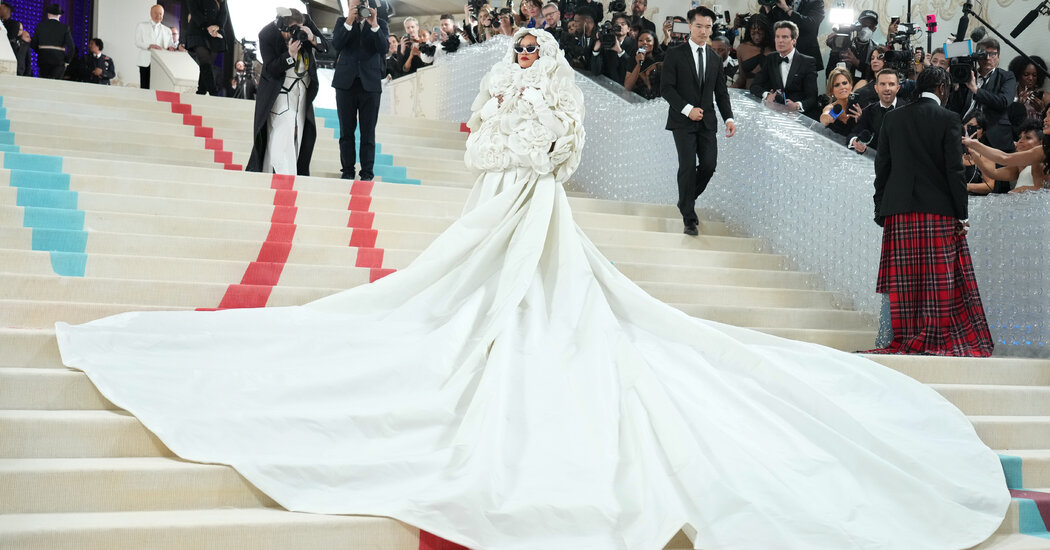
First things first: What is the Met Gala?
Officially, it’s the Metropolitan Museum of Art Costume Institute benefit, a black-tie extravaganza held the first Monday in May to raise money for the museum’s fashion wing, the only curatorial department at the Met that has to pay for itself.
Unofficially, it’s the party of the year, the Oscars of the East Coast and “an A.T.M. for the Met” (the last according to the publicist Paul Wilmot). Consider that last year’s event raised almost $22 million, while the Met’s Art & Artists Gala raised $4.4 million.
How is that possible? What is the secret sauce?
Two words: Anna Wintour.
Ms. Wintour, the global editorial director of Condé Nast and the editor in chief of its marquee fashion magazine, Vogue, has been the gala’s chief mastermind since 1999 after first signing on in 1995, and has transformed the event from a run-of-the-mill charity gala into a mega-showcase for Vogue’s view of the world — the ultimate celebrity-power cocktail of famous names from fashion, film, tech, politics, sports and, increasingly, social media. Every brand scratches every other brand’s back.
We think of it as the Fashion X Games or the All-Star Game of Entrances.
When is it?
The big day is Monday, May 6. In theory, the timed arrivals — each guest is allotted a slot — start at 5:30 p.m., usually with the evening’s hosts, and end around 8 p.m. But you try telling Rihanna when to show up. (Last year she came so late, other guests had already begun to leave.)
Is there a theme?
The party signals the opening of the Costume Institute’s annual blockbuster show, and the benefit is usually themed to the exhibition. Last year, that was easy — Karl Lagerfeld, the designer of Chanel, Fendi and his own brand, was both subject and dress code. But this year the show is called “Sleeping Beauties: Reawakening Fashion,” and it is a lot more convoluted.
It will be built around not fairy tales or Disney, but rather treasures in the museum’s fashion collection so old and delicate that they cannot be displayed on mannequins. Instead, the exhibit will involve A.I. and 3-D recreations of the work, as well as sound and, um … smell. But that’s not all.






